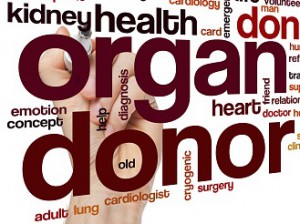 April is National Donate Life Month, a month dedicated to celebrating the lives of people saved by organ donation and the donors who made a difference. In 2015, over 30,000 lives in the United States were saved thanks to the men and women who decided to give the gift of life.
April is National Donate Life Month, a month dedicated to celebrating the lives of people saved by organ donation and the donors who made a difference. In 2015, over 30,000 lives in the United States were saved thanks to the men and women who decided to give the gift of life.
During National Donate Life Month, organizations such as LiveOnNY carry out missions or campaigns to educate communities about the importance of organ donation. These initiatives are very important because they address many concerns people may have about becoming a donor, such as:
- Religion- Most major religions such as Buddhism, Judaism, Christianity, Islam and others are in support of organ donation.
- Age – If you have been given approval by your doctor to be a donor, you are never too old. The oldest person in the U.S. on record to be a donor was 93 years old.
- Health conditions- It is important that you do not rule yourself out as donor due to medical conditions. Each case is different.
- Premature death- The primary goal of doctors is to save your life. Donation is only considered when all efforts to save a patient’s life have failed.
Flushing Hospital is encouraging people to help play a role in saving or improving lives by registering as organ donors. Research shows that 90 percent of New Yorkers support organ donation but only 25 percent are registered. By registering, you can make a difference and help save up to eight lives.
For more information please visit www.LiveOnNy.org
All content of this newsletter is intended for general information purposes only and is not intended or implied to be a substitute for professional medical advice, diagnosis or treatment. Please consult a medical professional before adopting any of the suggestions on this page. You must never disregard professional medical advice or delay seeking medical treatment based upon any content of this newsletter. PROMPTLY CONSULT YOUR PHYSICIAN OR CALL 911 IF YOU BELIEVE YOU HAVE A MEDICAL EMERGENCY.

